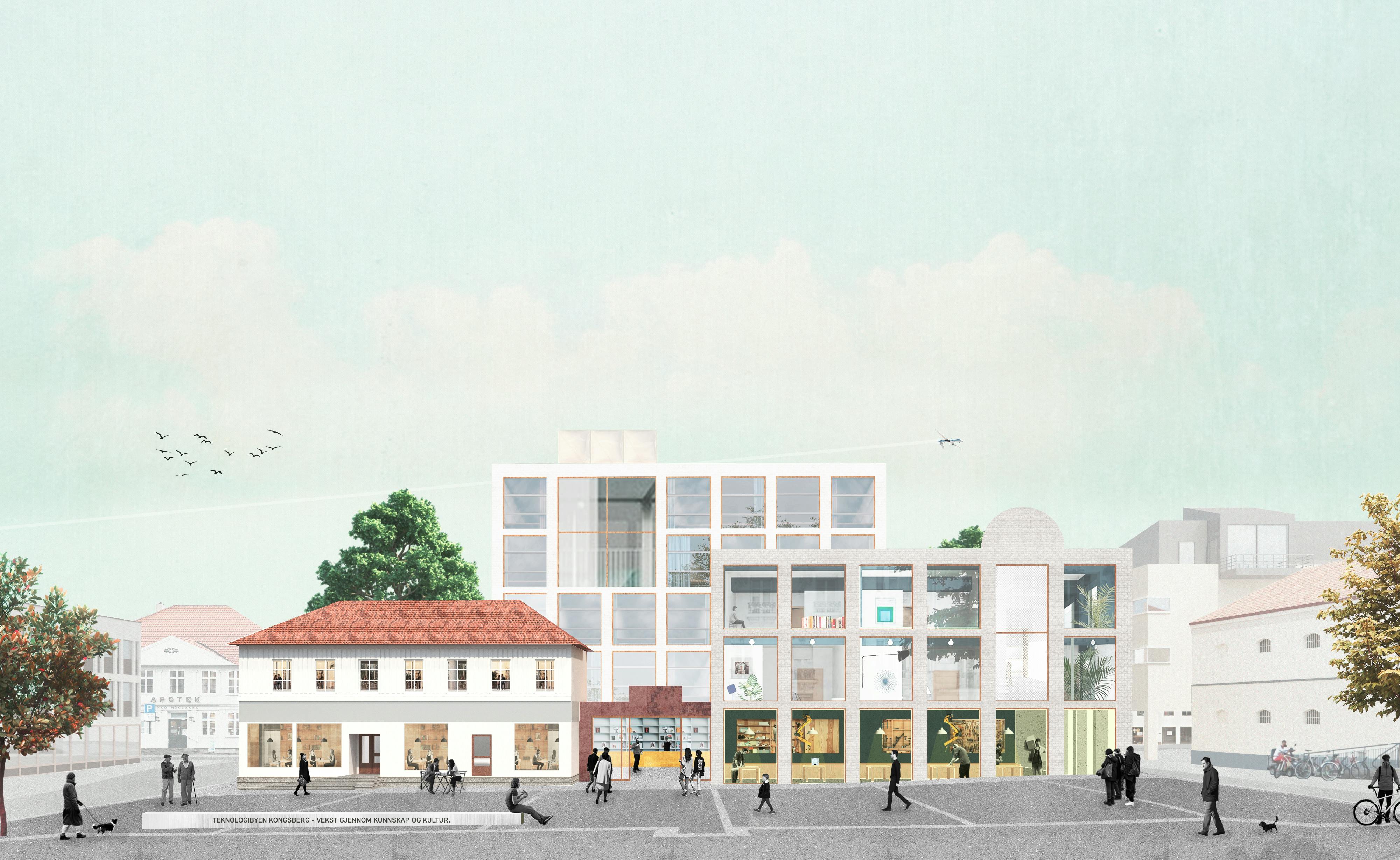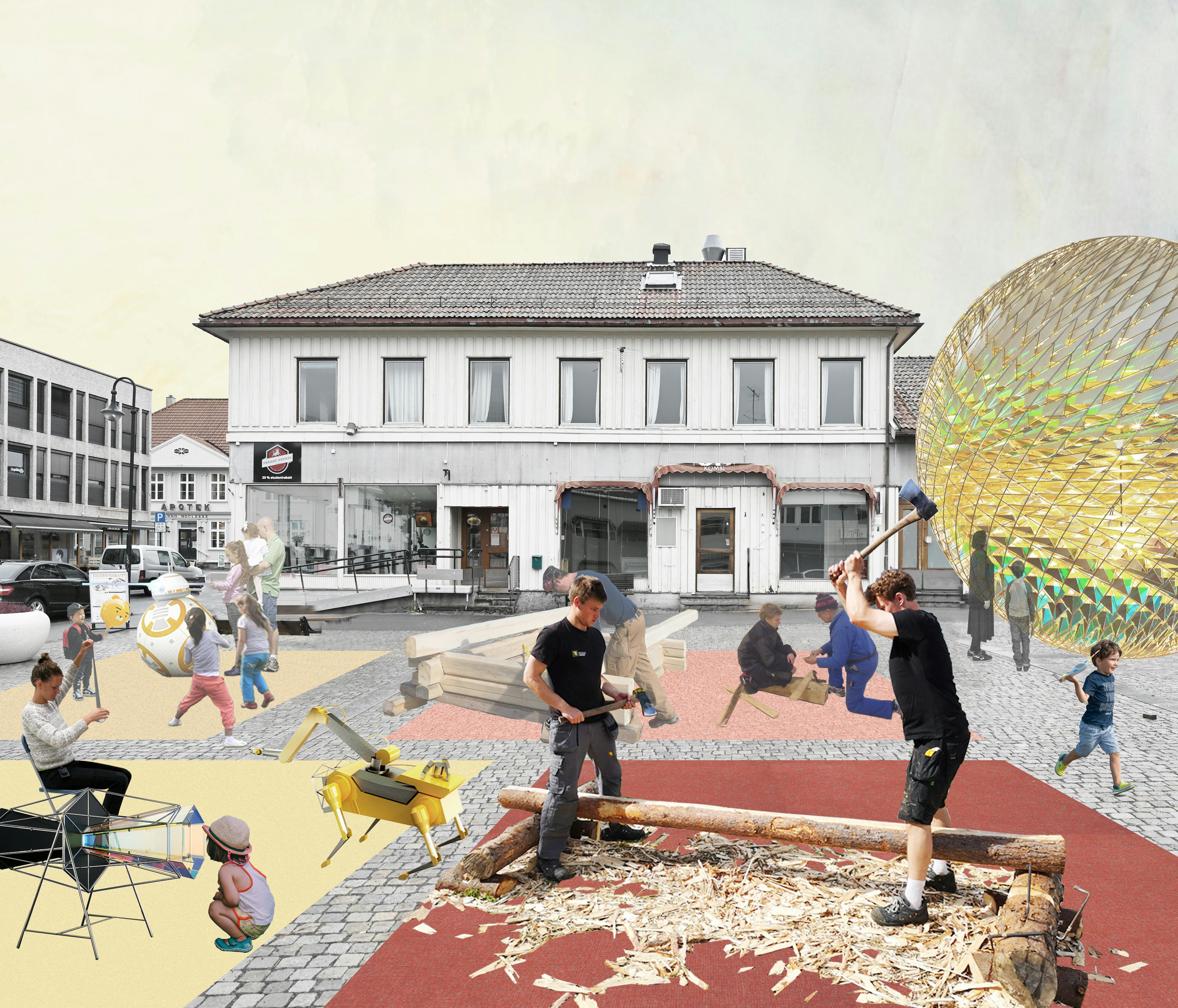Learning city
Kongsberg
Kongsberg’s identity as an industrial city is rooted in a long history from mining to high technology. The oldest part of the city on the west side of the river is however characterized by many empty buildings. This feasibility study tries to look at ways to reactivate this part of Kongsberg and create a clear connection to the other side of the river.
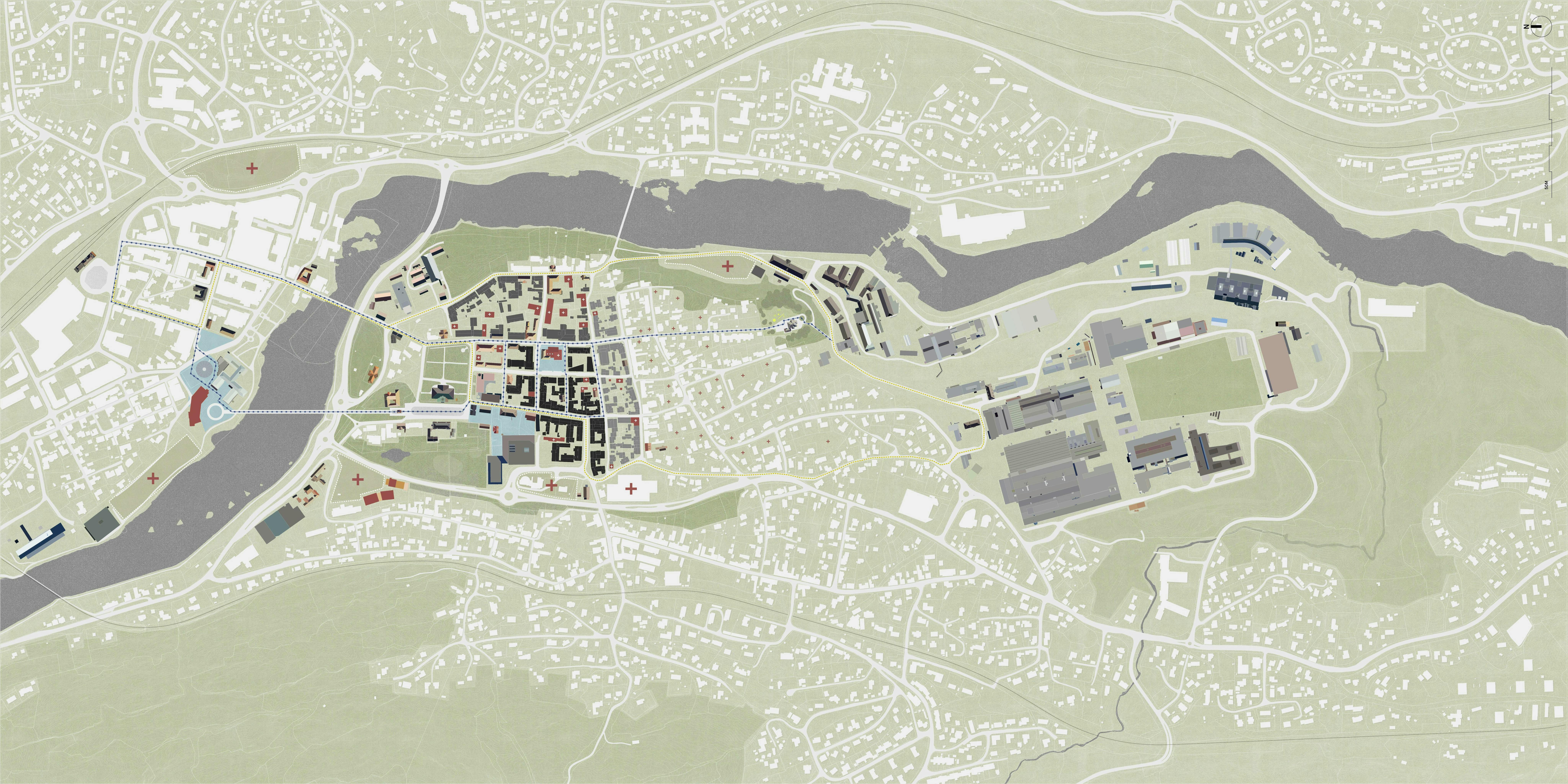
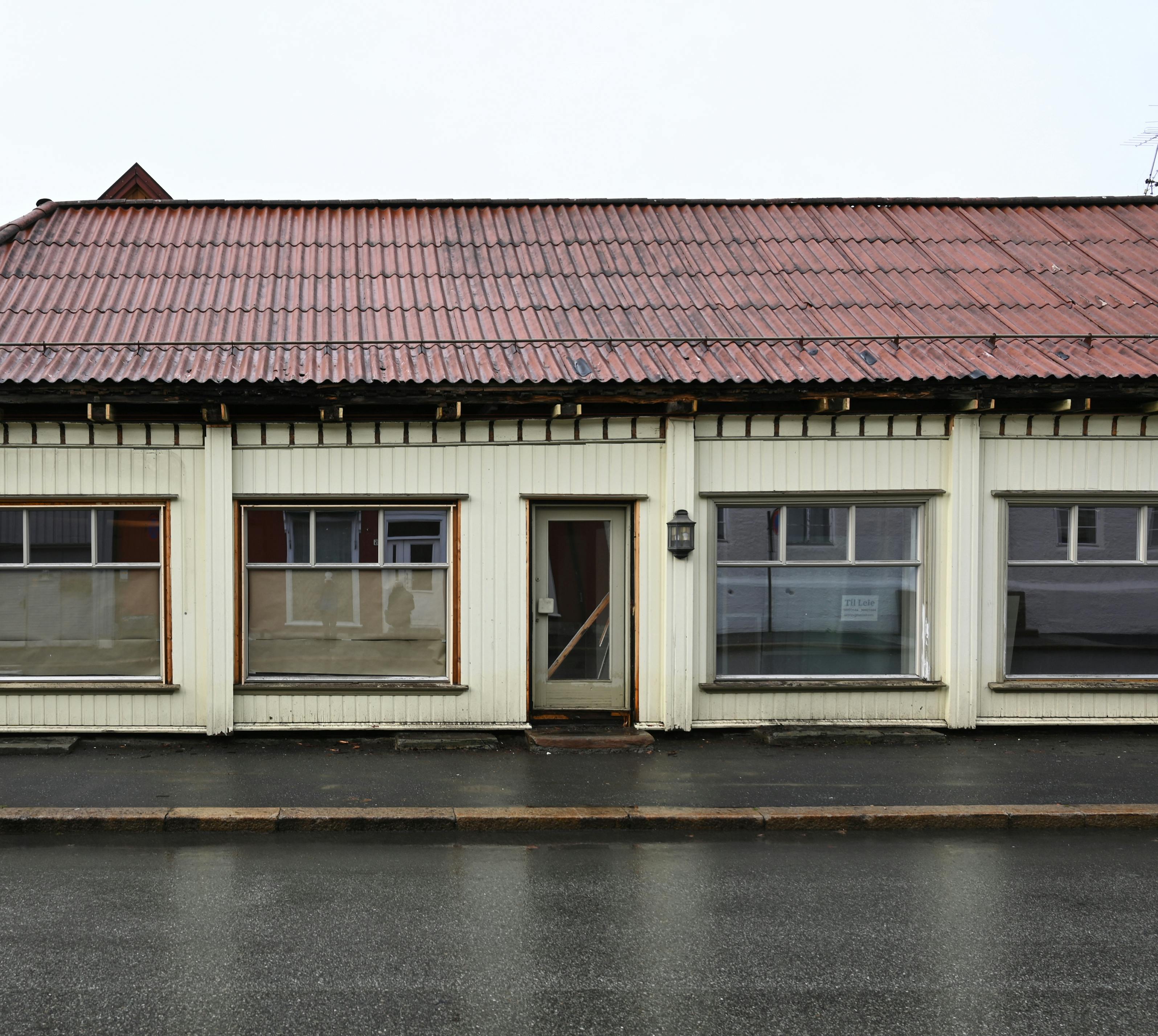

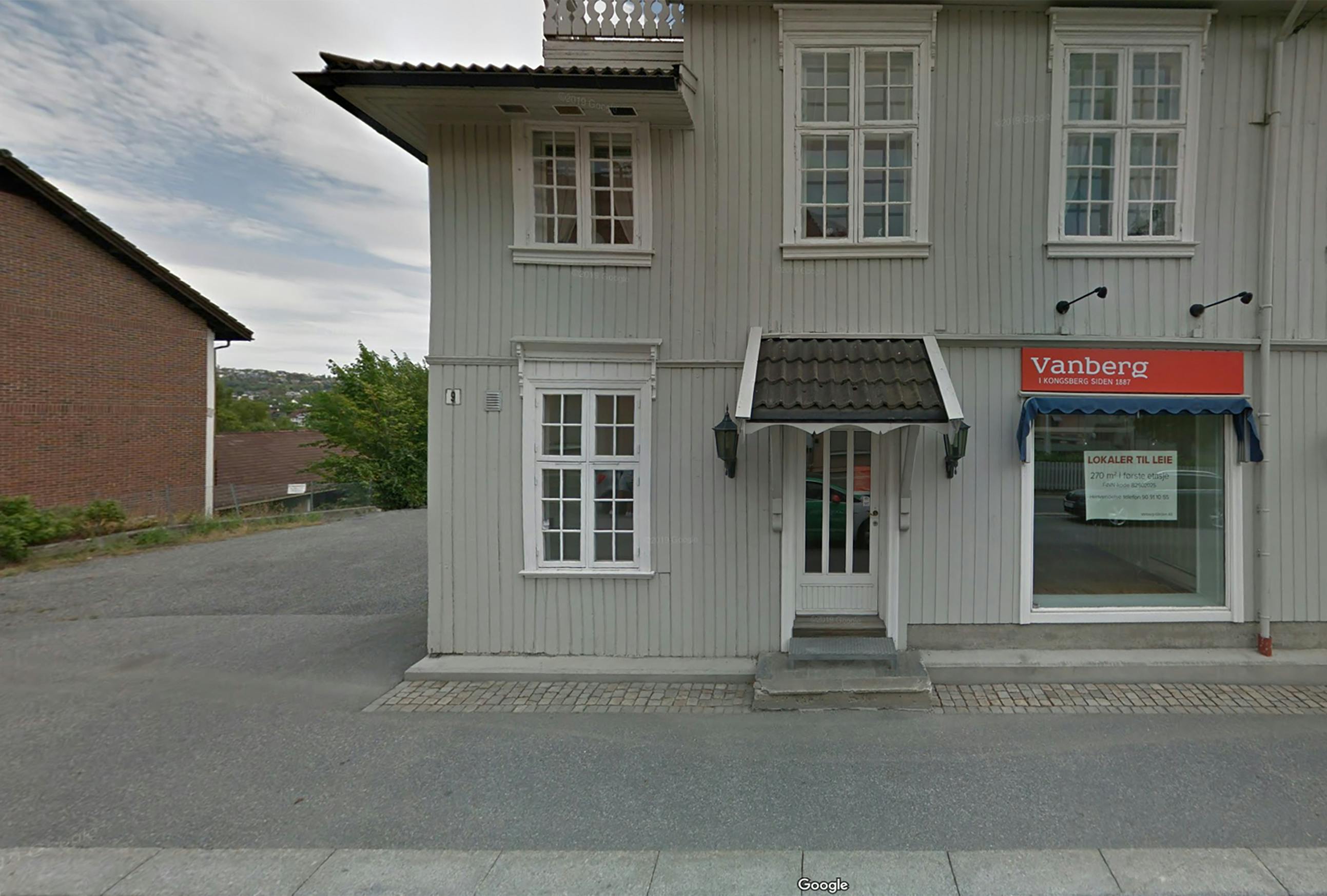
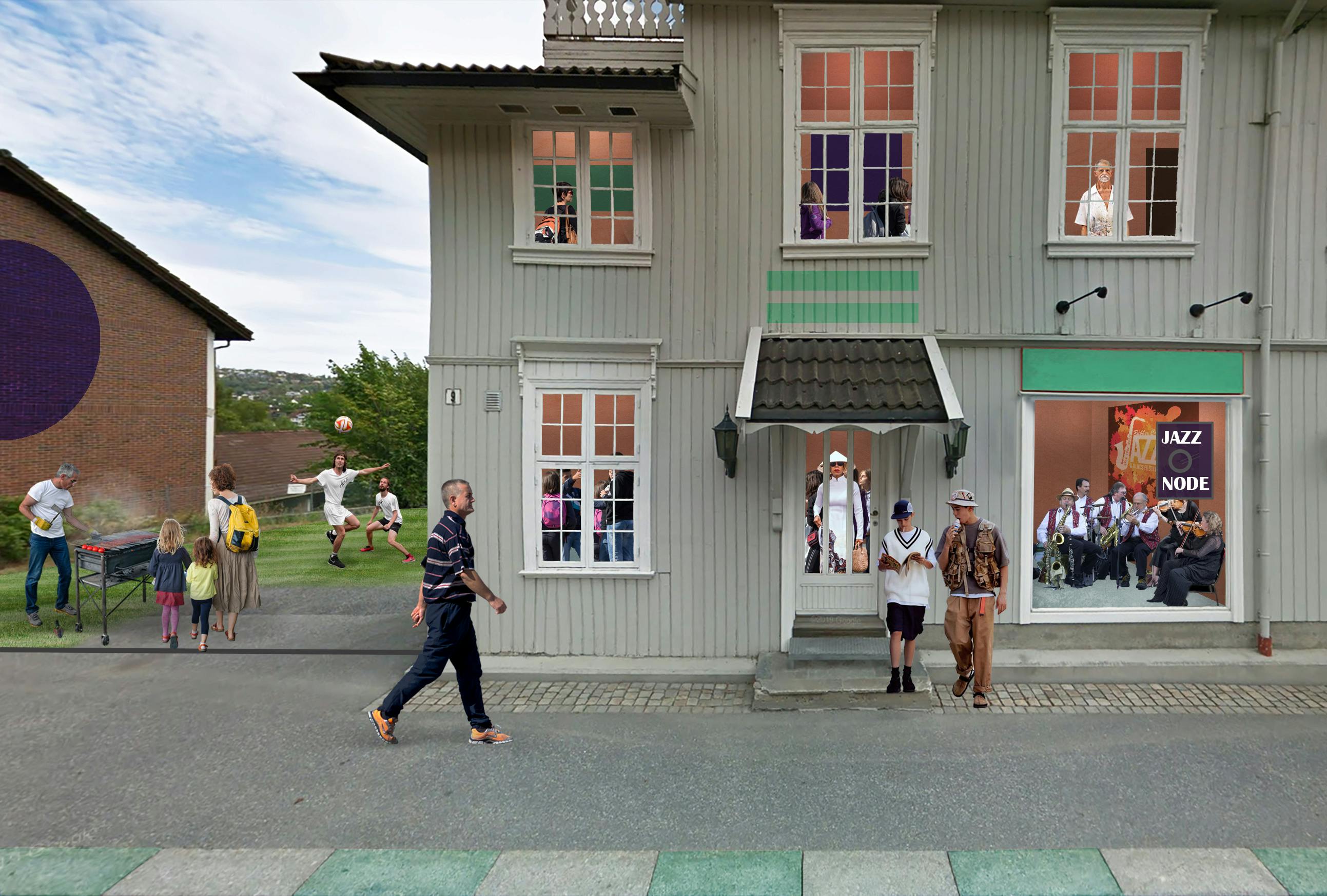

TYPE
Urban Planning
CLIENT
Kongsberg kommune
DATE
2019
STATUS
Parallel commission
TEAM
Ingrid Dobloug Roede, Are Hagen, Jonas Bø Cassel, Christopher Caleb Hansen, Espen Røyseland, Øystein Rø
Kongsberg is a city of knowledge with two main clusters: knowledge institutions along the west and east sides of the river and the technology park in the south. There is great potential in connecting the many institutions in the city by activating the buildings within the grid structure on the west side to connect the city centre on in the east and the technology centre in the south.
With a short distance to Kongsberg’s technology park and its 5500 employees, there great possibilities for creating an active city life. The development of a city campus of the west side will connect the existing learning environments, start-ups and culture and create flexible spaces for production and service. New urban spaces with good conditions for the walking and cycling are also created to bind the area together and connect it to the area on the other side of the river.
